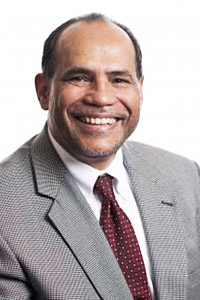Bruising trade wars, polarised democracies, deep deficits of trust and significant strategic differences are the expressions of the split world in which we live today, as a consequence of our choices. But nature seems to have other unifying plans for us.
Indeed, on the one hand, hardline dogmatism and polarisation or inward-looking policies are accentuating the division of the world along geographical borders. On the other, ironically, natural calamities including wildfires, typhoons, floods, earthquakes, and the ongoing 2019 coronavirus disease (or Covid-19), have shown that we cannot stop natural crises from breaching borders. Nature has shown us, time and again, that it does not recognise borders, race, gender and politics, and that the individual short-term gain of a divisive approach to global natural events will only lead us to the collective long-term pain of the response by nature.
Two cases exemplify this irony.
First, our inability to reach a reasonable agreement on climate change with concrete actions has made the world more vulnerable to its adverse effects. The unprecedented scale and intensity of Amazon and Australian wildfires, and the destructive climatic events that are getting more frequent and intense, are causing irreparable damage to human lives, ecosystems and economies.
These alarmingly increasing intensity and numbers of natural disasters, climate-induced deaths, and displacement of people and wildlife are evidence that the consequences of climate change are escalating.
Scientists have warned time and again that if global warming continues, extreme weather and climate events are likely to become more frequent, freshwater will be in short supply, land territories will vanish, and diseases are likely to reappear and spread. Disaster-induced migration is projected to increase rapidly and will expose migrants to further environmental hazards and diseases. The greater the policy division the larger the common calamity.
Second, our inability to respond in a rapid and coordinated manner to a health crisis emerging in individual countries is showing the low level of coordination and preparedness for global health emergencies.
The novel coronavirus is rapidly evolving, with the number of deaths and confirmed cases increasing daily. This crisis is perhaps an indication of what will be more common in the future. In an increasingly interconnected world, greater movement of people and goods is a reality, and with that, outbreaks like the Covid-19 and the associated risks of pandemics will likely happen again. As with past health emergencies such as the Severe Acute Respiratory Syndrome (Sars) and Ebola, the response to Covid-19 outbreak has demonstrated that we need to improve our global collective game to be prepared for outbreaks and pandemics and their associated economic impacts.
Historically, the response to public health emergencies has been to act after they occur. It is time to change this paradigm and move toward risk reduction and management in the area of health crises, focusing on risk detection, prevention and response. In the case of outbreaks with a global potential, this cannot be done in isolation. Here again, division and stigmatising will only lead to the aggravation of the very same adversities we are trying to fight.
Evaluations of the financial and technical responses from multilateral agencies to previous emergencies, both natural calamities and outbreaks, have taught us that international cooperation is needed to effectively combat and prevent adverse events of regional and global proportions.
Lessons learned underscore the importance of global collective agreement and commitment, surveillance for environmental and health hazards, inclusion of public health crises in national disaster risk management frameworks, and regional and global cooperation on knowledge sharing and capacity building to prevent and fight climate change and public health emergencies.
In sum, global and regional cooperation and coordination are fundamental to face the challenges that the planet is presenting to us. So is also the need to articulate the participation of the private sector in these efforts, especially the international corporate world, which is often heavily affected by disruptions of trade flows and global value chains.
Fortunately, we have created an architecture of global and regional institutions that are designed to foster and facilitate collective thinking and action, including the UN agencies and the multilateral development banks. But more effort is needed to enhance this dimension of their mission.
For instance, in Asia and the Pacific, the Asian Development Bank (ADB) is uniquely placed to play this critical role and has a unique mandate to promote regional cooperation and integration. Its recently issued corporate strategy -- Strategy 2030 -- has defined fostering regional cooperation and integration, and tackling climate change, building climate and disaster resilience, and enhancing environmental sustainability as part of the seven operational priorities of the institution in the next 10 years. ADB and other multilateral institutions must continue to give high priority to this visionary and specific mandate in Asia and the world.
We must heed the teachings of nature. The question is: Are we ready to learn? Dogmatism and polarisation, as well as inward-looking policies can only aggravate the perils -- often as a result of our choices -- which nature will continue to throw back at us. More and certainly not less regional and global cooperation, coordination and collaboration, including with the private sector, are needed to address the current and future challenges facing humanity, because we may today be living in a world resolutely divided by short term policies, but we are and will continue to be living in a world irremissibly united by nature.
Marvin Taylor-Dormond is director-general for independent evaluation at the Asian Development Bank.
